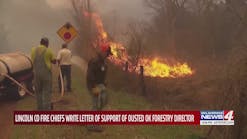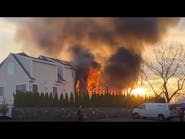Let me share a thought with you that you might find somewhat odd, but since that has never stopped me in the past, here goes. It is my opinion that in order to be a successful instructor, you must become comfortable with being a leader. I say this because of the important place that instructors play within the fire service.
Many times over the past several years, I have commented on the wide variety of positive attributes that a leader must possess. I must have filled reams of paper and countless computer screens with my views on the need for leaders to make decisions, communicate, delegate, and create a productive organization, among other things.
This time around, let me create a list which contains a number of things you should avoid. It is my contention that if you can eliminate these traits and actions, you should have a fairly good chance to succeed. I have seen these things in others and I have worked hard to eliminate them from my instructor’s toolbox. However, nothing is certain in life. Many times we find out what works and what does not work through the mechanism of trial and error.
I can recall an excellent article a number of years ago in the Star Ledger of Newark, N.J. Management consultant and writer, Dr. Steve Adubato spoke to the fact that, “ … when you talk to most leaders, you find out that a lot of what they have learned about leadership has come through the mistakes they, or those around them, have made.” Let me suggest that each of us can learn to be a better leader when we are able to study the mistakes of others.
This is the approach I have used for many years now to share my nearly three decades serving in a variety of leadership roles in the fire service. I learned a great deal by watching the people who served as my supervisors and leaders. I have made my share of mistakes. I want to do everything within my power to help you avoid making the myriad of mistakes that have marked my career. The list of things I want you to consider is fairly short:
- Poor listening
- Not growing and learning
- Failing to say thank you
Many times over the decades I have stressed that leaders must listen. This is a critically important skill for instructors. How can you teach an effective class unless you listen to the students? You must pay attention to what they are saying about your course topic, delivery, and information. Listening is also a two-way street. While you expect your students to listen to you, your students also have the right to expect that you will listen to them.
I promise you that a class wherein no questions are occurring is not a good class. None of us is so perfect that we meet all of the possible needs of our students. Conversely, none of our students is so brilliant that they know everything (although there does seem to be a large and growing quota of know-it-alls in the fire service). If you are listening and they are not asking questions, that tells you that your reaction must be to ask questions of them.
If they suddenly burst forth into a boatload of questions, you have done a good thing. If they have some good answers, then that too indicates that you have done a good thing. If there is silence, punctuated by blank stares, you are doing a bad thing.
Memories of the first course I ever taught at the college level back in 1978 haunt me to this very day. I had selected what I felt to be a good text. I had read it many times and then branched out to other texts so that I could have a greater depth and range of knowledge. Goals for the course were developed, and then objectives were created that dovetailed neatly with the goals. Handouts were created that listed the reading assignments, as well as the quiz and examination schedules. I felt that I was as ready as anyone ever had been to teach a course in fire department management.
I blew out of the blocks quickly. I lectured on the topics from the texts and broadened the stream of ideas with facts from the outside books I had read. Things seemed to be going fabulously. Or so I thought. There were a few questions, but nothing great to write home about.
At the end of the third class, a couple of the students hung back as the others exited the classroom. I approached them and asked if something was wrong, and could I help. Their answer floored me. They told me that they felt I had a great grasp of the topic, and that my lectures seemed OK, but...when I asked them to go on, they told me that they and a number of the associates did not know where I seemed to be heading.
They were concerned that they were not getting a total picture of what the course was all about. They told me that perhaps if I were to create an outline of the course they might do better.
It came to me in a flash. These people were listening, but my words were not tied to anything about which they could make overall sense. I had left out the critical step of giving them a weekly handout that tied my reading assignments to the topics and subtopics I was discussing.
From that day to this, I have made it my business to give my students a great of guidance on just what we were going to do, how we were going to do it, and why. I listen to them, and they in turn are more likely to listen to me.
This leads me to my next point. We as instructors must never cease striving to learn about what we do. Many times it has been my misfortune to meet people who gave the impression of knowing all there was to know about firefighting. These people had taken the requisite courses to become instructors in a variety of topics. They then proceeded to teach the same things, over and over again.
As they moved through their time as instructors, they never varied from the script. However, they failed to read the trade magazines in an effort to stay on top of their areas of expertise. Further, they failed to study the changing audience that occupied the seats in their classes. They were teaching the skills of the 1970’s to the students of the year 2002. This is a bad thing.
The outcome is usually negative. Their information is dated. Their approach to teaching does not meet the need of today’s student and the general result is failure and frustration for both the instructor and the student. The student complains that the old guy just isn’t with it. And the instructor wonders where the students from the good old days went. You can hear them wondering why there are so many snot-nosed kids in their class.
This is a truly sad thing to see. The student is not learning what they need to know and the instructor is spiraling downward towards a date with oblivion. This does not have to be the case. Each of us should be reading at least two to four journals a month. Each of us should be attending at least one major conference per year.
Every instructor should be taking at least two, and possibly more classes each year. There is no such thing as just being an instructor. Every one of us must be just as much of a student as we expect our students to be.
I now firmly believe that two things happen on a recurring basis:
- Knowledge evolves and changes
- Our student population changes on about a seven to 10 year basis
The only way to stay ahead of the knowledge curve is to read. In this case, I believe that the trade publications and websites serve as a good starting point. However, each of us must invest in a personal library. It does not have to be as big as the one that I have in my office here in Adelphia. I have a series of fifteen shelves built onto the walls of my office with somewhere in excess of 1,000 volumes ranging in age from the 1930’s to today. My office, attic, and garage are filled with trade publications dating back to the 1920’s. However, as a consultant and writer, I need this. You can probably get away with a lot less.
However, you need to have books from every area that the fire service encounters:
- Firefighting strategy and tactics
- EMS
- Hazardous materials and weapons of mass destruction
- Management, leadership, administration
- Hydraulics
- Historical fire studies
Do not skimp. Instructors need to know more than their students. They must also be able to answer questions. Books and knowledge will do a lot along those lines. Never stop learning. If you do, then you had best hang up your notebook and stop teaching.
Lastly, you must never forget to say thank you. None of us ever achieved any amount of success by ourselves. Each of us is a product of the many people who have devoted their lives to teaching us how to do what we do. What I am today is the sum total of the efforts of literally scores of instructors dating back to the first person who taught me a course in basic first aid in 1964.
The truly successful instructor recognizes their role in the world. They mold, shape, and educate the minds of their pupils. Good instructors always thank the students for their effort in making the learning equation work. They also need to periodically thank the people who made it possible for them to become who and what they are today.
It is for that reason that I will periodically share stories with you from the past about people who have had an impact on my life. People like Roger McGary from Maryland. He taught me to be enthusiastic about my work. He also taught me to be ready at all times. To this day I retain the exciting images of his high-octane training style. Thank you Roger. The same thing goes for Jim MacKenzie. Thank you Jim.
A good instructor is equal parts of mentor, encourager, cheerleader, and knowledge broker. You must want your students to succeed and teach them how to reach that goal. Remember, in order to succeed you must listen to, respond to, support, encourage, and thank your students. To do anything less is to waste their time and jeopardize them and their associates.
Remember that you should avoid all of the following if you want to succeed as a fire service instructor.
- Poor listening
- Not growing and learning
- Failing to say thank you






